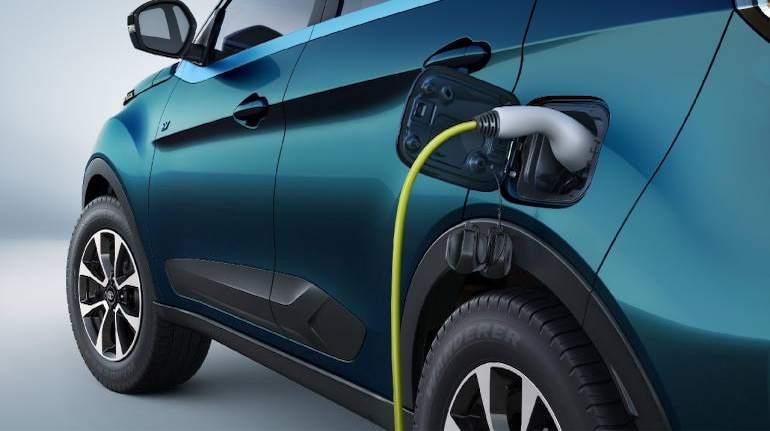



Electric vehicle sales in FY20 rose 20 percent to 1,56,000 units as demand for vehicles powered by conventional fuels nosedived.
According to data by Society of Electric Vehicle Manufacturers (SMEV), 1,52,000 electric two-wheelers, 3,400 electric passenger vehicles (ePVs) and 600 electric buses were sold during 2019-20.
The corresponding sales for the 2018-19 were 126,000 electric two-wheelers, 3,600 ePVs and around 400 electric buses making a total of 130,000 units.
Sales of PVs (powered by petrol, diesel and CNG) during last year dropped by 15 percent to 2.63 million while that of two-wheeler slumped 16 percent to 16.55 million, as per data shared by SIAM.
Electric rickshaws do not form part of the tally as the segment largely comprises of unorganized players. It has estimated to have seen sales of 90,000 units during FY20. The corresponding figures of the E-ricks sold in the previous year have not been documented, said SMEV.
Low-speed scooters that travel at a maximum speed of 25km/hr and do not need registration constituted a whopping 90 percent of all the electric two-wheelers sold last year.
The two-wheeler space saw the entry of two strong players – Bajaj Auto and TVS Motor Company - during last year. Bajaj introduced the electric Chetak while TVS introduced the iQube in limited markets. Bengaluru-based Ather Energy and Hero Electric, India’s largest electric vehicle manufacturer, also introduced new models last year.
The electric four-wheeler segment saw 5.5 percent drop in volumes to 3,400 units. Two new electric passenger vehicles – MG ZS EV and Tata Nexon EV – were launched in the last quarter of the year which got impacted due to the coronavirus pandemic.
Nearly 200 Nexon EVs are estimated to have sold by Tata Motors. MG Motor has clocked sales of 116 units of the ZS EV and a further 2000 units are on order.
The decrease in numbers is attributed mainly due to lack of bulk purchase of E-cars in 2019-20 and discontinuation of one of the leading car models – Mahindra e20. The E-Taxi segment is also beginning to get some traction, though the range of E-cars and lack of charging spots in enough density are a deterrent in the growth of E-taxi segment, SMEV said in a statement.
"The EV industry is taking shape and we believe that despite the COVID-19, FY21 will be a defining year for all the EV segments. Given the right impetus by the government the EV industry can spring back faster than the ailing internal combustion vehicles segment," said Sohinder Gill, Director General, Society of Manufacturers of Electric Vehicles.
Production in China has resumed and supplies of battery cells is expected to begin soon. China has the world's biggest battery cell manufacturing companies and is the sole supplier to India.
"A pertinent factor that may work in favour of electric two-wheelers post-COVID-19 would be the choice of switching over from crowded mass transport to the sensibly priced electric two-wheelers with almost the same cost of commuting, as of public transport," added Gill.

Discover the latest Business News, Sensex, and Nifty updates. Obtain Personal Finance insights, tax queries, and expert opinions on Moneycontrol or download the Moneycontrol App to stay updated!
Find the best of Al News in one place, specially curated for you every weekend.
Stay on top of the latest tech trends and biggest startup news.